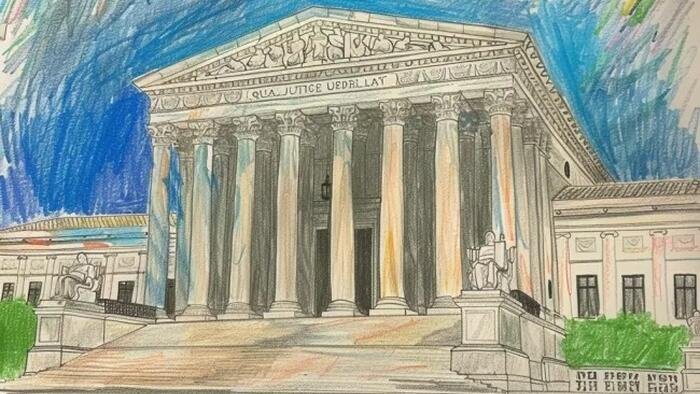Authored by Tho Bishop via The Mises Institute,
After recent decisions dealing significant blows to the American administrative state, the Supreme Court upheld a ruling in favor of Donald Trump in a case related to federal prosecution over January 6. In a 6-3 decision, the court determined that presidents have “presumptive immunity” for “official acts” while in office.
The ruling does not completely eliminate the possibility of federal prosecution, as the question of whether Trump’s actions constitute an “official act” will be determined by a lower district court. However, this decision effectively postpones any future resolution until after the November election.
Critics of the former president have reacted with expected alarm, suggesting that the Biden Administration now has the go-ahead to take drastic actions against a political opponent. On the same day, a close ally of Trump, Steve Bannon, was ordered to surrender to federal custody for non-compliance with a Congressional probe, highlighting the prevalence of extraordinary actions in Washington.
Not only have progressive critics expressed concern, but a dissenting opinion written by Justice Sonia Sotomayor also raised alarms.
“Never in the history of our Republic has a President had reason to believe that he would be immune from criminal prosecution if he used the trappings of his office to violate the criminal law. Moving forward, however, all former Presidents will be cloaked in such immunity. If the occupant of that office misuses official power for personal gain, the criminal law that the rest of us must abide will not provide a backstop.”
“With fear for our democracy, I dissent.
Advocates for equal protection under the law would likely agree that no president should be above the law. However, the issue at hand is not a new development but rather a longstanding tradition of presidential immunity from misconduct.
As highlighted on Mises.org, the executive branch’s history of criminal behavior has become deeply ingrained in the office itself. Examples include unauthorized declarations of war, targeted killings of American citizens abroad, and disregard for Supreme Court concerns regarding student loans.
Critics argue that while past presidential transgressions may differ from Trump’s alleged misuse of power for personal gain, such behavior has not been uncommon in the highest office. Even Bill Clinton, on his way out of office, was involved in questionable pardons for financial gain.
The outcry against Trump’s actions, while valid, is undermined by the historical acceptance and even participation in similar actions by previous administrations. This inconsistency in criticism has contributed to growing disillusionment with American institutions.
Loading…

